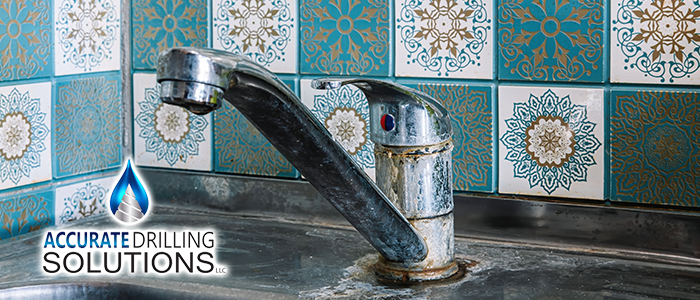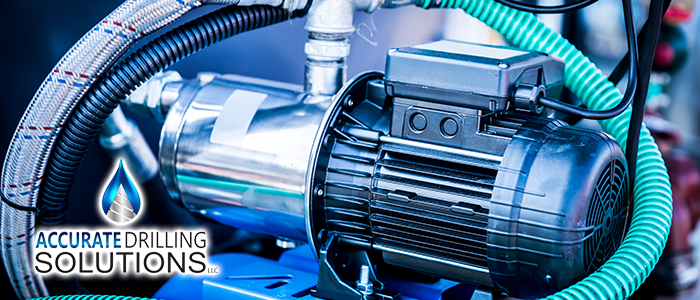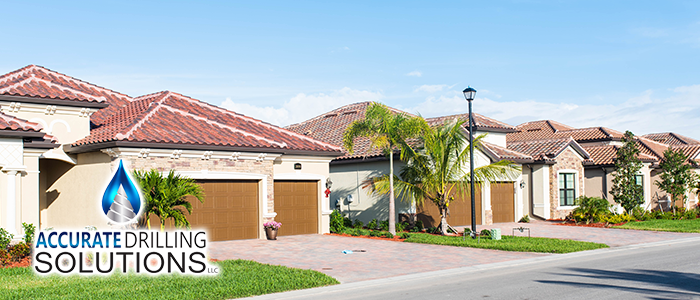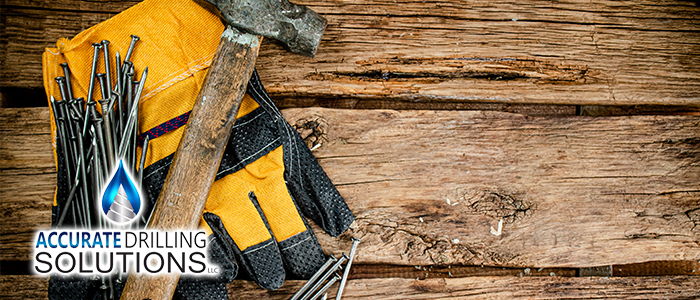
Signs of Hard Water
Did you know that in North Central Florida, it’s common for homeowners to experience “extremely hard” or “very hard” water from their well due to large amounts of Limestone in the ground and soil found in most of the state? The term “hard water” was originally applied to any source that was hard to wash in, referring to the deposits that prevents soap from lathering. But how do you know if you have hard water, and what are the negative effects it has on your home? Outside of professional testing, there are a few key signs to look out for.
Reddish Stains and Thick Scales on Faucets
If you notice a recurring reddish-brown ring in your toilet and find rusty looking areas in your shower or tub, iron is likely the cause.
You may notice a hard-water film and scale on your bath and kitchen fixtures, shower walls, toilets—even your shower doors. The build-up can make these surfaces look opaque or dirty from water stains.
Cleaning the stains with vinegar and other cleaning solutions is possible, but they will return unless you address your hard water problem.
Dishes Still Seem Dirty After Washing
If you pull your dishes out of your dishwasher after a cycle and find a film covering your glassware, you likely have hard water. This buildup not only makes you want to wash everything twice, but it can cause a foul taste to your water.
A water softener integrated into your plumbing system will fix this issue.
You’re Having Skin Irritation
If your skin is dry or if you notice a change in the health of your hair, hard water could be to blame. Because it prevents soap from lathering and rinsing properly—it doesn’t completely rinse shampoo or soap off of your body or out of hair follicles
This can cause dryness and irritation, leading to dandruff. In addition to dry skin, you may also notice your hair color quickly fading or having split ends—or even that you’re more prone to razor burn.
Your Clothes Feel Rough and Look Dingy
Do you feel like your whites are looking dingy and your towels are feeling rough? If so, the water in your home might be too hard.
Because it’s harder to rinse soap off of skin or clothing, hard water can leave behind residue that increases soil build-up on clothing. Washing laundry in hard water does a poor job of cleaning fabrics and results in dingy-looking clothing. It also wears out clothes 40 percent faster than washing them with soft water!
And that’s not the only way hard water wastes your money. Because it’s harder to wash with, those who have it tend almost four times as much detergent just do the laundry—not including additional fabric softener you may be using in an attempt to combat all this extra hardness on your clothes.
Appliances Are Wearing Out Rapidly
If you are still not convinced that it has an impact on your wallet, consider this last sign. An overabundance of minerals in your system (causing it to be hard) can have a huge impact on your plumbing and therefore appliances like washing machines, dishwashers—and even boilers!
Hard water can damage steel pipes, which usually leads to reduced flow. This increases the likelihood of pipe repairs and leaves appliances working harder.
An imbalance of minerals in your water can cost you almost 30% more to heat than pure, soft water. Not only is this bad for the environment and raises bills unnecessarily, but it also puts wear and tear on your heater’s parts—shortening its life span. If you neglect your washer machine and dishwasher, the same issues can happen to them—costing you expensive repairs.
Get Your Water Tested
If you’re experiencing any of the signs listed above, we highly encourage you to get your water tested. If a well is used for drinking or commercial use (including decorative ponds), regular testing should be performed—even more so if more than one family member is ill.
Our softeners take the harsh minerals out of your system and replace them with beneficial ones. Your hair, clothes, dishes—everything will feel softer after we’re done working our magic.
Call us at Accurate Drilling today and we’ll test your home’s system and discuss options for softening treatment so you can get your system back to where it needs to be!
continue reading
Related Posts
Wesley Chapel’s Guide to Commercial Pump Installation For businesses and
Lakewood Ranch: Modern Well Systems for New Developments As new
Spring Hill Property Managers’ Guide to Well Maintenance For property





